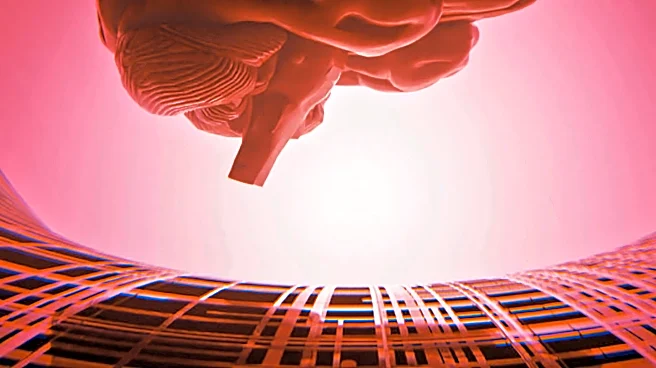What's Happening?
Recent research has highlighted how the human brain creates its own version of reality, a process crucial for survival. The study, led by Hyeyoung Shin, PhD, at Seoul National University, explores how the brain's
primary visual cortex (V1) interprets sensory information to form perceptions. This process involves filling in gaps based on past experiences and evolutionary design, allowing quick decision-making in response to environmental stimuli. The research involved experiments with mice, demonstrating how specific neurons in V1 can create illusions, suggesting that perception is not a direct recording of reality but an inference process.
Why It's Important?
Understanding how the brain constructs reality has significant implications for neuroscience and psychology. It sheds light on how humans perceive the world and make decisions, emphasizing the brain's role in survival. This research could influence fields such as cognitive science, artificial intelligence, and even philosophy, as it challenges traditional notions of reality and perception. For the general public, these findings may impact how individuals understand their own sensory experiences and the reliability of their perceptions.
What's Next?
Future research may delve deeper into the mechanisms of perception and illusion, potentially leading to advancements in neuroscience and technology. Scientists might explore applications in AI, where understanding human perception could enhance machine learning algorithms. Additionally, this research could inform therapeutic approaches for conditions involving perception anomalies, such as certain mental health disorders. Stakeholders in neuroscience and technology will likely continue investigating the implications of these findings.
Beyond the Headlines
The study raises philosophical questions about the nature of reality and consciousness, suggesting that what individuals perceive may not be an accurate representation of the world. This could lead to discussions on the ethical implications of manipulating perception, whether through technology or other means. The research also highlights the brain's efficiency in conserving energy, which may influence future studies on brain function and health.









